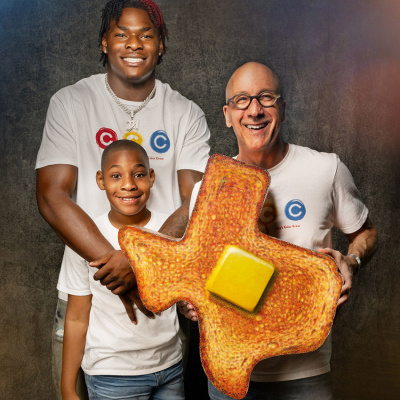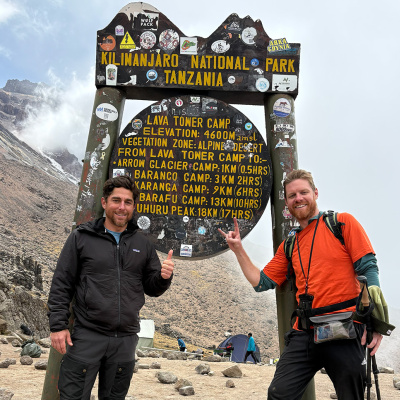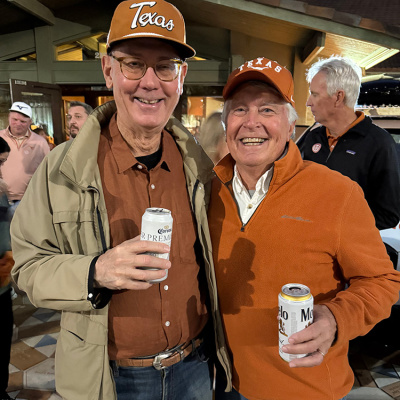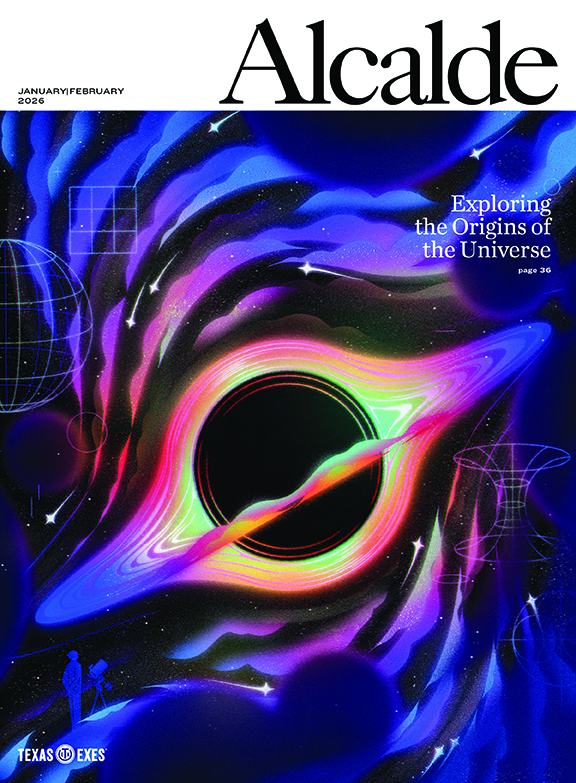How a Blind Iraqi Refugee Overcame Enormous Obstacles to Earn a UT Degree
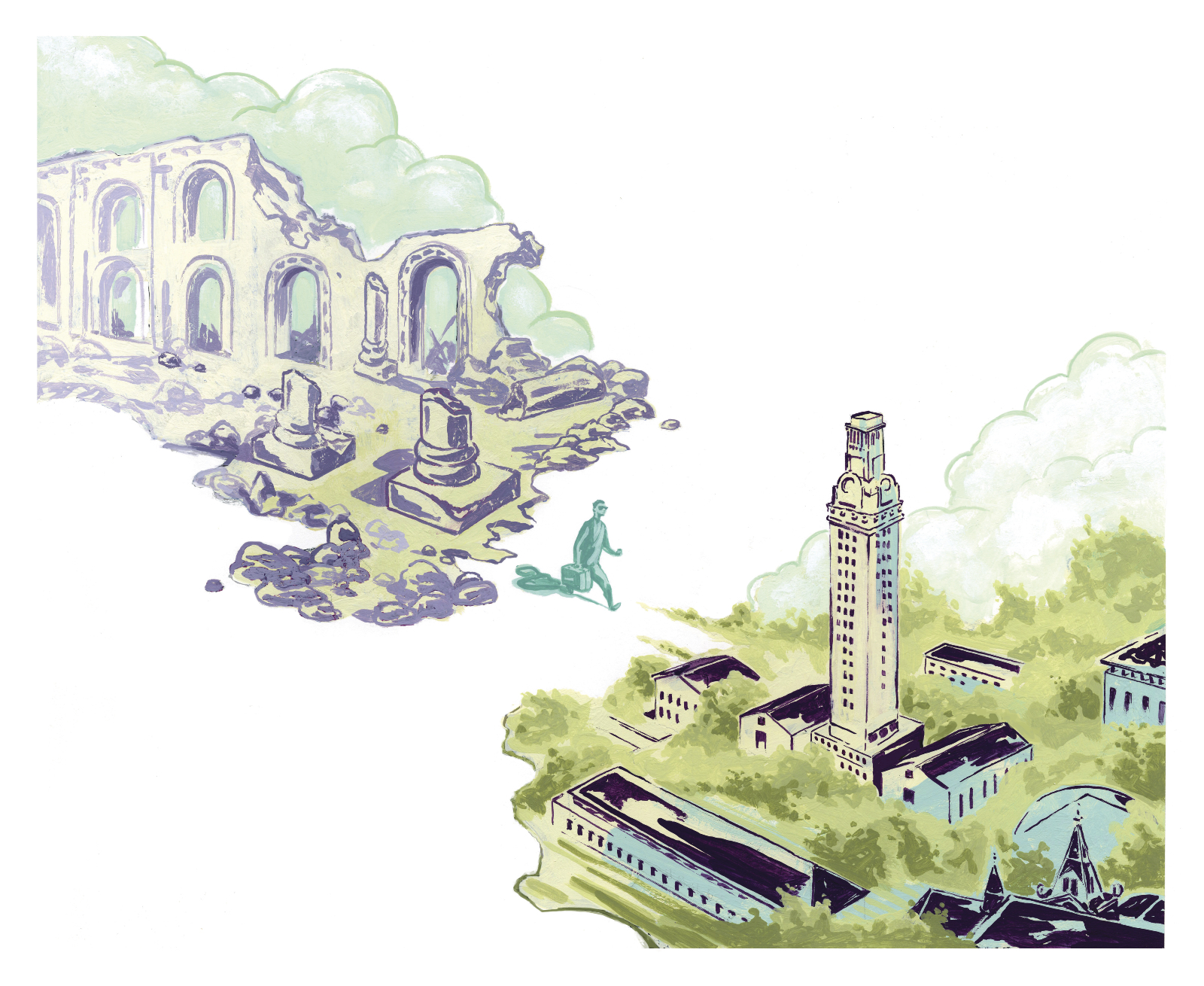
“Four days,” Qusay Hussein tells me, echoing an experience many in Austin and across the state went through in mid-February when an overloaded electricity grid failed amid a winter storm. Four days without electricity, waiting for the world to spark back to life with the flick of a switch.
Between Sunday and Thursday, Hussein, a senior who graduates this spring with a double major in psychology and social work, padded around his off-campus apartment in the dark, cooking food and checking on his friends.
In some ways, Hussein is a typical undergraduate student at Texas. He’s eloquent and intellectually curious, an international student who has quickly adapted to a new culture. He’s an ambitious person and learner, with plans to soak in everything he can until he earns his PhD in psychology. But most graduates set to virtually walk across the stage this May aren’t 32 years old. Most aren’t refugees escaping war-torn Iraq. And certainly none have navigated getting their degrees after spending three years at a Doctors Without Borders hospital as their face was put back together.
I ask him if his friends came to help him during the storm. It must have been especially harrowing to navigate this crisis as a blind man.
“Not until Wednesday,” he says. Not that they didn’t offer to. “I was worried about them because the roads were very slippery. I was scared they would get in an accident.”
In a city without snow plows, Hussein thought about others’ safety before his own. That’s what happens when your closest friend in the world is ripped away from you as your own life hangs in the balance.
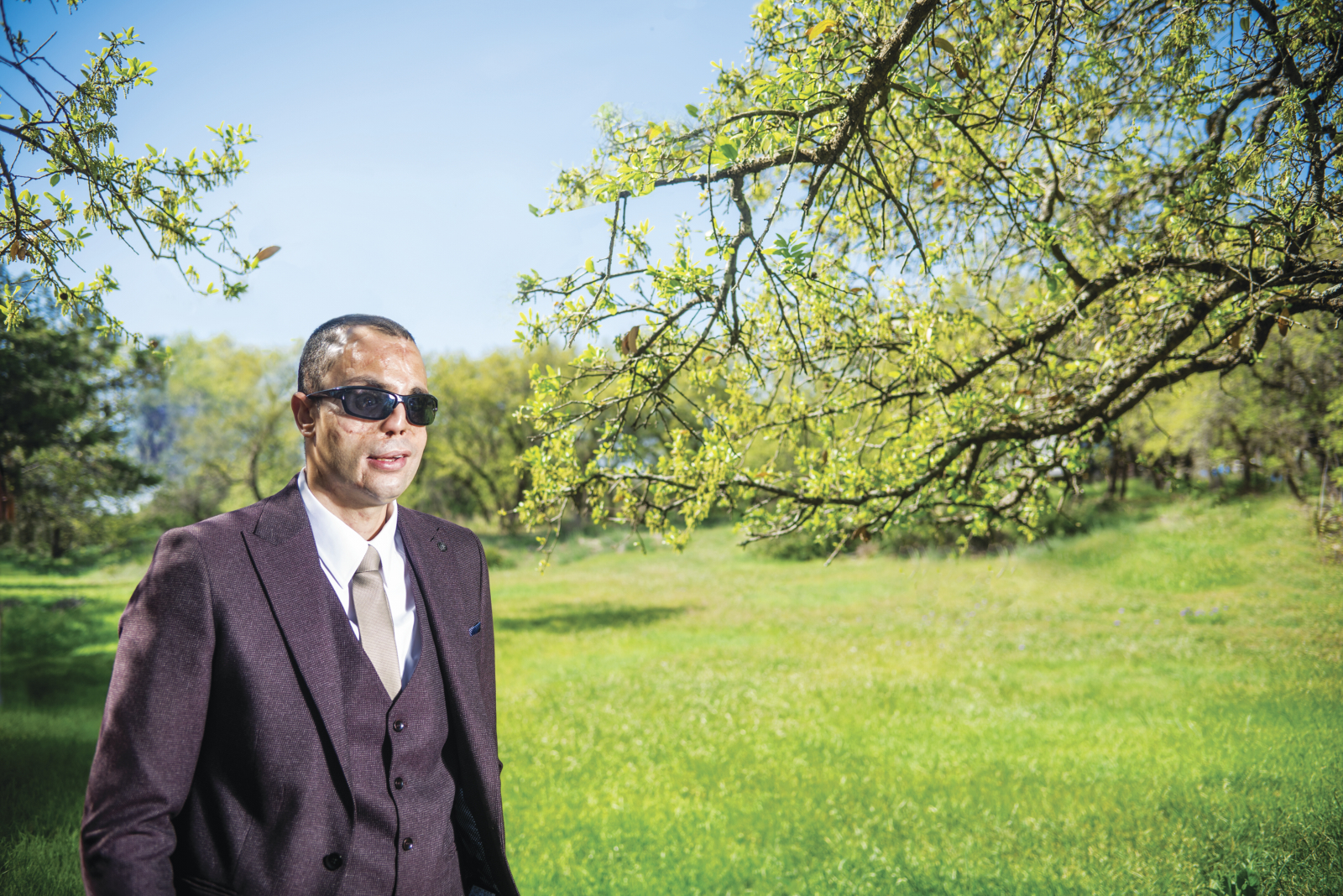
Hussein once lived in Hatra, an ancient city once known for its elegance and resilience.
In the years 116 and 198, the Northern Iraqi city that stood as the capital of the first Arab kingdom withstood brutal attacks from the Romans, surviving because of its thick, towering walls. Sometime in the third century though—historians place it around A.D. 241—the Sasanians conquered the city, which sat abandoned until its rediscovery in the 19th century.
Hussein’s family moved there from a farm in a small village called Abunja when he was 15. The city was bustling, and Hussein would attend school in the afternoons, spending many nights gathering with friends in a stadium to play volleyball.
One August day in 2006, Hussein remembers playing volleyball surrounded by a large crowd of spectators watching him and the other kids play. Hussein was there with his childhood buddy Ibrahim when a truck barreled into the stadium. As soon as the driver honked his horn, the truck exploded in a flash that threw Hussein to the ground. Those who weren’t among the 56 injured in the suicide bombing quickly piled the bodies into cars and trucks and sped to the local clinic.
When Hussein’s father arrived at the clinic, he was told that his son was about to die, and to collect his body later. When he returned that night, he heard his son calling out to him, his face almost completely destroyed in the blast.
“We don’t know why,” Hussein told me when we first spoke in 2019. “We weren’t bothering anyone. I don’t see the point of it … we were a bunch of kids.”
In all, 16 people were killed, including Ibrahim. Hussein spent 12 days in a coma, saved only because of a fortuitous meeting at a U.S. checkpoint on the way to a Mosul hospital, which led to his airlifting to an Army base. Hussein almost died there, and his family, who hadn’t heard anything and fearing he had died, held a funeral
Upon his release, Hussein spent three years confined to his home in excruciating pain, his vision gone, unable to breathe from his nose. He took all his meals through a syringe. Another serendipitous moment—hearing an advertisement for Doctors Without Borders—saved his life. Along with his father, he traveled to Amman, Jordan, after he was approved for treatment, where he spent three years undergoing surgeries and treatment to repair his face. Wanting to continue his education, he entered a refugee program and was settled in Texas with the help of Refugee Services of Texas.
“Immigration, they choose your destiny. We don’t know until the day they tell you which state you will be in,” Hussein says. “Two days before they said ‘you are going to Austin, Texas.’ I think I’m lucky. I love Austin. I like the weather, it’s like Iraqi weather, it’s hot.”
A caseworker advised him to learn English and get his GED, so he did, and in 2016, finished at ACC with honors. In 2018, he enrolled at UT Austin to study psychology.
“I like the campus, I like people,” Hussein says. “The advisor psychologists, I love all of them. So supportive. Mr. Jay Brown has been very important.”
Brown, the academic advising coordinator for the Department of Psychology, remembers meeting Hussein at orientation that fall. All he knew was that a visually impaired student would be attending. As he accompanied Hussein back to Jester, he was shocked by the new student’s maturity.
“I was blown away by how he was able to move and to pick up on all sorts of points and things. He just radiated positivity,” Brown says. “He is the most adaptable person; he’s culturally the most literate human I have ever met.”
Brown registered Hussein for classes each semester, which he doesn’t do normally for students but made an exception in this case, and ensured that Hussein only took classes that would work with his impairment. During normal times, Hussein made his way relatively easily across campus, learning how to navigate ridesharing apps to help along the way (though the beginning of the scooters era was one major difficulty, with vehicles strewn around campus sidewalks).
COVID-19 has been a mixed bag for the graduating senior. Hussein is very much a people person, and benefits from facetime with professors because he often has extra questions. Now it’s just Facetime and Zoom. And while navigating campus hasn’t been necessary for a while, which makes life easier in one respect, he admits he struggled a bit with learning new technology.
His family—who he hasn’t seen in years—is all safe in Iraq, and none have been directly affected by the virus. And though the city he loved remains in shambles, Hussein has been rebuilt, and transformed himself from someone who once felt hopeless to a man who is a beacon of hope for many.
Every email Hussein sends contains a simple message in his signature: “Do not let your disability stop you from doing what you want to accomplish. Never say, ‘I can’t,’ instead say, ‘I will try.’”
As far as Hussein has come, he hasn’t forgotten Hatra. When I ask him if he still thinks of that day, of his childhood friend and neighbor Ibrahim, he is quick to answer: “Always,” Hussein says. “He will not be forgotten by me.”
In the same way, Hussein is finishing his undergraduate studies at UT with an internship at the RST, the same organization that got him from Jordan to the U.S. He’s transferring all the knowledge he’s gained in the last eight years on to people just like him, folks arriving in Texas who are mired in culture shock the second they step off the plane. He says he had so many questions when he arrived at John F. Kennedy Airport in 2012, most of them cultural, and he wants to help new refugees acclimate to America. He points to the stress of merely moving from one house to another to illustrate his point. Now, imagine being forced from your homeland to a new country?
“I came to the U.S., no family, no relatives, don’t speak their language. It was hard,” Hussein says. “I want to give all I can—the details I didn’t get when I came here, like how things work, how to get resources.”
After graduation, he wants to continue on to graduate school and eventually earn his PhD from UT, where—who knows?—he might be a professor someday. Brown only sees brightness in his future.
“If I had ever had children, I would have loved to have had somebody with a spirit like that,” he says. “I can see him doing great things in the future for everyone he meets. I can see him becoming a very big leader within the community that he finally settles in. And, I just … I’m so proud to have been able to meet him.”
Hussein recalls a particularly touching moment from the beginning of the pandemic, when he reached out to a professor. Because of his impairment, Hussein has to make sure before each semester that he has everything in place: readings, textbooks, and the like. Hussein asked about textbooks, and the professor told him that he wouldn’t be using any that semester because of the pandemic; he thought students could use a little extra money at that time.
“This hit me hard,” Hussein says, “how the professor thinks a quick, small thing could help. This one’s like … it’s amazing. If I become an instructor, I will do my best to help my students.”
Illustration by Tim Bower; photograph by Matthew Mahon
